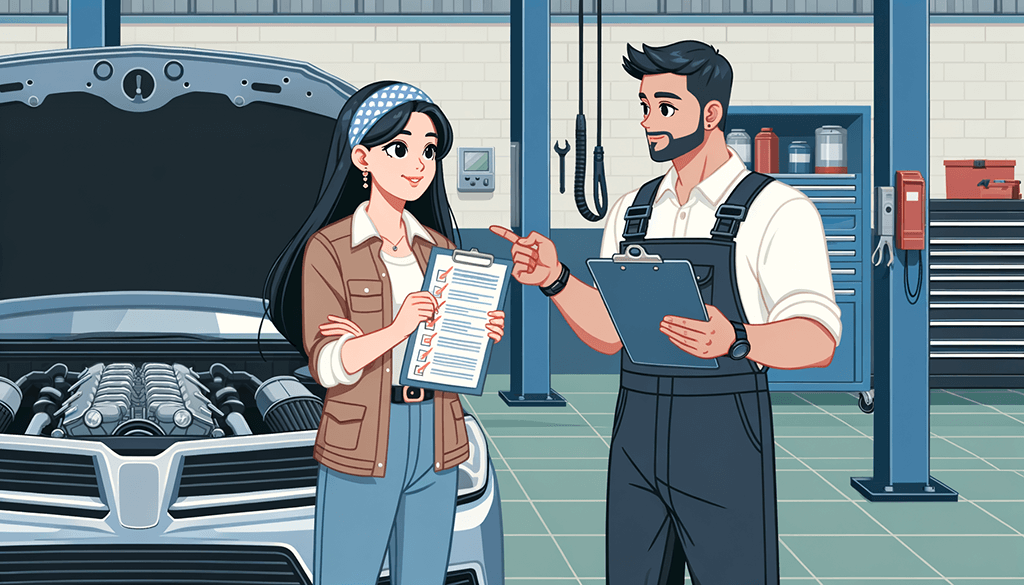
Don’t Let the Auto-Repair Shop Take Advantage of You: Tips for Staying in Control
Taking your car to an auto-repair shop can be an intimidating experience, especially if you’re not familiar with the inner workings of your vehicle. Many people have found themselves overcharged or persuaded into unnecessary repairs simply because they trusted the mechanic’s advice without asking enough questions. In this article, we’ll explore some effective strategies to help you avoid being taken advantage of at the auto-repair shop.
Do Your Research Beforehand
One of the best ways to stay in control at the auto-repair shop is to do your homework before you even set foot inside. Familiarize yourself with your car’s make and model, common problems it might face, and the approximate cost of typical repairs. Websites, forums, and even YouTube channels can offer valuable information. The more you know about your car, the harder it is for someone to deceive you. For example, if you understand that brake pad replacements for your car usually cost around $200, you’ll know something’s off if a mechanic quotes $500.
Get a Second Opinion
When a mechanic recommends a costly repair, it’s always wise to get a second opinion, especially if the suggested repair was unexpected or the explanation seems vague. If another mechanic gives you a similar assessment, you can feel more confident that the repair is indeed necessary. However, if the second shop gives you a completely different diagnosis, it might be a red flag. Shopping around not only ensures you get the best price but also helps you confirm whether the repair is really needed.
Ask for a Detailed Breakdown of Costs
When you receive a repair estimate, don’t just accept a lump sum. Ask the mechanic to provide a detailed breakdown of the costs, including parts, labor, and any additional fees. This gives you a clearer understanding of what you’re paying for and can help you spot unnecessary charges. For example, if the breakdown shows an unusually high charge for a part, you can check online to see if that’s the going rate or if you’re being overcharged.
Don’t Be Afraid to Say No
Many people feel pressured to approve all the repairs recommended by the mechanic because they don’t want to appear rude or uninformed. Remember, you’re the customer, and it’s your right to say no to any service or repair you’re not comfortable with. If a mechanic suggests additional work beyond what you originally came in for, ask if it’s urgent or if it can wait. Prioritize the essential repairs first, and don’t let yourself be talked into paying for extras unless you’re sure they’re necessary.
Beware of Common Scams
Unfortunately, some auto-repair shops are known for employing dishonest tactics to maximize their profits. Here are a few common scams to watch out for:
- Unnecessary Fluid Changes: Some mechanics might tell you that your car’s fluids need to be changed even if they’re still in good condition. Make sure to check your owner’s manual for the recommended intervals for fluid changes.
- Fake Problems: In some cases, unscrupulous mechanics might claim there’s a problem that doesn’t actually exist, like a worn-out part or a leak. If you suspect this might be happening, ask the mechanic to show you the issue directly or get that second opinion.
- Overcharging for Parts: As mentioned earlier, some shops inflate the prices of parts well beyond what you’d pay if you purchased them yourself. If possible, compare the shop’s quote with prices you find online.
Build a Relationship with a Trustworthy Mechanic
One of the best defenses against being ripped off is to establish a relationship with a mechanic you can trust. Ask friends, family, or coworkers for recommendations, and read online reviews. Once you find a reliable mechanic, stick with them. A good mechanic will take the time to explain repairs, show you the worn-out parts, and never pressure you into unnecessary work. Over time, this relationship can provide peace of mind, knowing that your vehicle is in good hands.
Keep Records of Past Repairs
Keeping a record of your car’s repair history can be extremely useful when dealing with mechanics. If you know when parts were last replaced or when certain services were performed, you’re less likely to fall for unnecessary recommendations. For example, if a mechanic tells you that you need new brake pads, but you know they were replaced just a few months ago, you can question the necessity of the repair.
Know Your Rights
It’s important to know your rights as a consumer when dealing with auto-repair shops. In many places, mechanics are legally required to provide a written estimate and get your authorization before performing any work beyond what was agreed upon. Make sure you’re clear on what’s being done and how much it will cost before you sign anything. If you feel like you’re being scammed or overcharged, don’t hesitate to report the shop to the relevant authorities.
Conclusion
Navigating the world of auto repairs can be daunting, especially if you’re not an expert in cars. However, by doing your research, asking the right questions, and being cautious, you can avoid many of the pitfalls that lead to overpaying or being tricked into unnecessary repairs. Remember, knowledge is power. The more informed you are, the more confidently you can handle your next visit to the mechanic.
Miért mi?
A realestateinvestmenttrust.hu a biztos út az ingatlanpiaci sikerekhez. Az ingatlanbefektetési alapok (REIT-ek) segítségével egyszerűen és hatékonyan részesedhetsz a jövedelmező ingatlanpiac adta lehetőségekből. Legyen szó stabil osztalékjövedelemről vagy hosszú távú értéknövekedésről, szakértőink segítségével garantált eredményeket érhetsz el.

Comments are closed